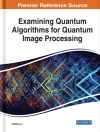This book provides answers to fundamental and challenging questions regarding the global response to COVID-19. It creates a historical record of COVID-19 research conducted over the four years of the pandemic, with a focus on how researchers have responded, quantified, and modeled COVID-19 problems. Since mid-2021, we have diligently monitored and analyzed global scientific efforts in tackling COVID-19. Our comprehensive global endeavor involves collecting, processing, analyzing, and discovering COVID-19 related scientific literature in English since January 2020. This provides insights into how scientists across disciplines and almost every country and regions have fought against COVID-19. Additionally, we explore the quantification of COVID-19 problems and impacts through mathematics, AI, machine learning, data science, epidemiology, and domain knowledge. The book reports findings on publication quantities, impacts, collaborations, and correlations with the economy and infectionsglobally, regionally, and country-wide. These results represent the first and only holistic and systematic studies aimed at scientifically understanding, quantifying, and containing the pandemic. We hope this comprehensive analysis will contribute to better preparedness, response, and management of future emergencies and inspire further research in infectious diseases. The book also serves as a valuable resource for research policy, funding management authorities, researchers, policy makers, and funding bodies involved in infectious disease management, public health, and emergency resilience.
สารบัญ
Chapter 1 COVID-19 Characteristics and Complexities.- Chapter 2 Review Objectives, Questions and Methods.- Chapter 3 Highlights of the Findings.- Chapter 4 Overall Publication Collection and Processing.- Chapter 5 COVID-19 Research Profile and Impact.- Chapter 6 G20 and OECD Research Profile and Impact.- Chapter 7 Correlations between Research, the Economy and Infection.- Chapter 8 Modeling Publication Collection and Processing.- Chapter 9 Modeling Research Profile and Impact.- Chapter 10 Modeling Methods.- Chapter 11 Modeling Intervention, Vaccination, Mutation and Ethnic Condition Influence on Resurgence.- Chapter 12 AISDR: AI and Data Science for Crisis and Disaster Resilience.- Chapter 13 Making Science Ready for Future Emergencies, Crises and Disasters.
เกี่ยวกับผู้แต่ง
Prof Longbing Cao is the Distinguished Chair in Artificial Intelligence (AI) and an Australian Research Council Future Fellow (professor) at the School of Computing, Macquarie University, Australia. Before joining Macquarie, he was the Founding Director of the Advanced Analytics Institute at the University of Technology Sydney and was a chief technology officer. Prof Cao is an internationally active research leader in AI, data science, and machine learning in both research and practice. He chaired many ACM and IEEE chapters and task forces and served as general chairs, program chairs, and steering committee chairs of prestigious international conferences. He has served as editors-in-chief and on editorial boards of core AI and data science journals. His significant research leadership and socioeconomic benefits have been recognized by an individual Australia’s Eureka Prize and elected as an ACM Distinguished Scientist by ACM.












